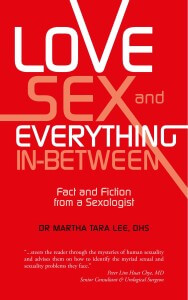Sexual disinterest can be a difficult thing to navigate. It can be a source of frustration, confusion, and even shame. Whether it’s a lack of interest in sex, difficulty becoming aroused, or difficulty reaching orgasm, it can be hard to talk about and even harder to understand. This blog will provide information on the causes of sexual disinterest, the ways in which it can be addressed, and the importance of communication with partners. We will also discuss how to cope with the emotions that come with sexual disinterest and how to find support.
- Fatigue: Fatigue is a common reason for a lack of sexual interest. When we are tired, our bodies are not able to respond to sexual stimulation as easily, which can lead to a decrease in desire.
Physical Health Issues: Physical health issues can be a major factor in a person’s disinterest in sex. Conditions such as chronic pain, fatigue, hormonal imbalances, and certain medications can all lead to a lack of sexual desire. It is important to speak to a doctor if you are experiencing any of these issues, as they may be able to provide treatment options that can help. - Mental Health Issues: Mental health issues such as depression, anxiety, and stress can all lead to a decrease in sexual desire. If you are struggling with mental health issues, it is important to seek professional help. A therapist or counselor can help you work through your issues and find ways to cope with them.
- Relationship Issues: If there are problems in your relationship, it can lead to a decrease in sexual desire. If you are having difficulty communicating with your partner or feeling disconnected from them, it is important to work on improving your relationship before attempting to address the issue of sexual desire.
- Low Self-Esteem: Low self-esteem can lead to a decrease in sexual desire, as someone may feel undeserving of pleasure or intimacy. It is important to work on building self-esteem and self-confidence if this is an issue for you. A therapist or counselor can help you work through any underlying issues that may be causing your low self-esteem and find ways to improve it.
- Cultural or Religious Beliefs: Certain cultural or religious beliefs may lead someone to have a decreased interest in sex. It is important to be respectful of these beliefs and understand that they may be deeply rooted and difficult to change. If you are struggling with this issue, it may be helpful to speak with someone who is knowledgeable about the beliefs in question and find ways to reconcile them with your own beliefs and values.
- Medication Side Effects: Certain medications can have a negative impact on sexual desire, such as antidepressants, anti-anxiety drugs, and blood pressure medications. Hormonal changes due to birth control can also affect libido. These side effects can lead to a decreased interest in sex.
- Age-Related Changes: As we age, our hormones and physical changes can cause a decrease in sexual desire. This can be due to menopause or other age-related changes that affect the body’s ability to respond to sexual stimulation.
- Alcohol or Drug Use: Alcohol and drug use can have an effect on sexual desire. Alcohol can lead to decreased inhibitions and increased arousal, but it can also lead to decreased sensitivity and decreased libido. Drug use can also have an effect on sexual desire, as certain drugs can interfere with the body’s ability to respond to sexual stimulation.
- Sexual Boredom: This can be caused by a lack of variety in sexual activities, or a lack of communication between partners about their sexual needs. It can be addressed by introducing new activities or talking openly about what each partner wants and needs.
- Sexual Attraction: Lack of sexual attraction can be caused by a variety of factors, such as physical appearance, personality, or lifestyle choices. It can be addressed by taking time to get to know each other better and exploring different types of activities that may help to create a spark.
- Sexual Difficulties: This can be caused by physical or psychological issues, such as erectile dysfunction, pain during intercourse, or anxiety. It can be addressed by seeking professional help and exploring different treatments that may help to alleviate the problem.
- Sexual Trauma: If you have experienced any form of sexual trauma, it can lead to a decrease in sexual desire. It is important to seek professional help if you have experienced any form of sexual trauma, as it can be difficult to work through on your own. A therapist or counselor can help you process your trauma and find ways to cope with it.
The work of a sexologist to uncover sexual disinterest is much like that of a private investigator. They are tasked with understanding the root cause of the problem and finding a solution that works for the individual. It is extremely important to seek help from qualified professionals rather than relying on self-diagnosis, well-meaning friends, or hearsay.
A Sexologist like myself will take the time to understand the individual’s unique situation, and will likely ask questions about their sexual history, preferences, and experiences. They may also discuss any underlying psychological issues or physical health concerns that could be contributing to the disinterest. Through this process, the sexologist can gain a better understanding of the individual’s needs and develop a treatment plan that is tailored to their specific situation.
The sexologist may suggest lifestyle changes or techniques to help rekindle the individual’s interest in sex. They may also recommend counseling or therapy sessions to help address any underlying mental health issues that could be causing the disinterest.
Sexual disinterest can be a difficult thing to confront and understand. It is important to remember that it is not a sign of failure or a lack of love, but rather a natural part of life. It is important to communicate openly and honestly with your partner, and to seek professional help if needed. With patience, understanding, and communication, it is possible to work through this difficult issue together.
For relationship counseling and/ or sexuality counseling, do contact us here.
About Dr. Martha Tara Lee
Dr. Martha Tara Lee has been a passionate advocate for positive sexuality since 2007. With a Doctorate in Human Sexuality and a Masters in Counseling, she launched Eros Coaching in 2009 to help individuals and couples lead self-actualised and pleasurable lives. Her expertise includes working with couples who have unconsummated marriage, individuals with sexual inhibitions and discrepancies in sexual desire, men with erection and ejaculation concerns, and members of the LGBTQIA+ and kink communities. Dr. Lee welcomes all sexual orientations and is available for online and face-to-face consultations. Martha speaks English and Mandarin.
She is the only certified sexuality educator by the American Association of Sexuality Educators, Counselors and Therapists (AASECT) in the region (as of 2011) and is also an AASECT certified sexuality educator supervisor (as of 2018). She strives to provide fun, educational, and sex-positive events and is often cited in the media including Huffington Post, Newsweek, South China Morning Post, and more. She is the appointed Resident Sexologist for Singapore Cancer Society, Of Noah.sg, OfZoey.sg, and Virtus Fertility Centre. She is the host of radio show Eros Evolution for OMTimes Radio. In recognition of her work, she was named one of ‘Top 50 Inspiring Women under 40’ by Her World in July 2010, and one of ‘Top 100 Inspiring Women’ by CozyCot in March 2011. She is the author of Love, Sex and Everything In-Between (2013), Orgasmic Yoga: Masturbation, Meditation and Everything In-Between (2015), From Princess to Queen: Heartbreaks, Heartgasms and Everything In-Between (2017), and {Un}Inhihibited (2019).
You can read the testimonials she’s received over years here. For her full profile, click here. Email her here.








